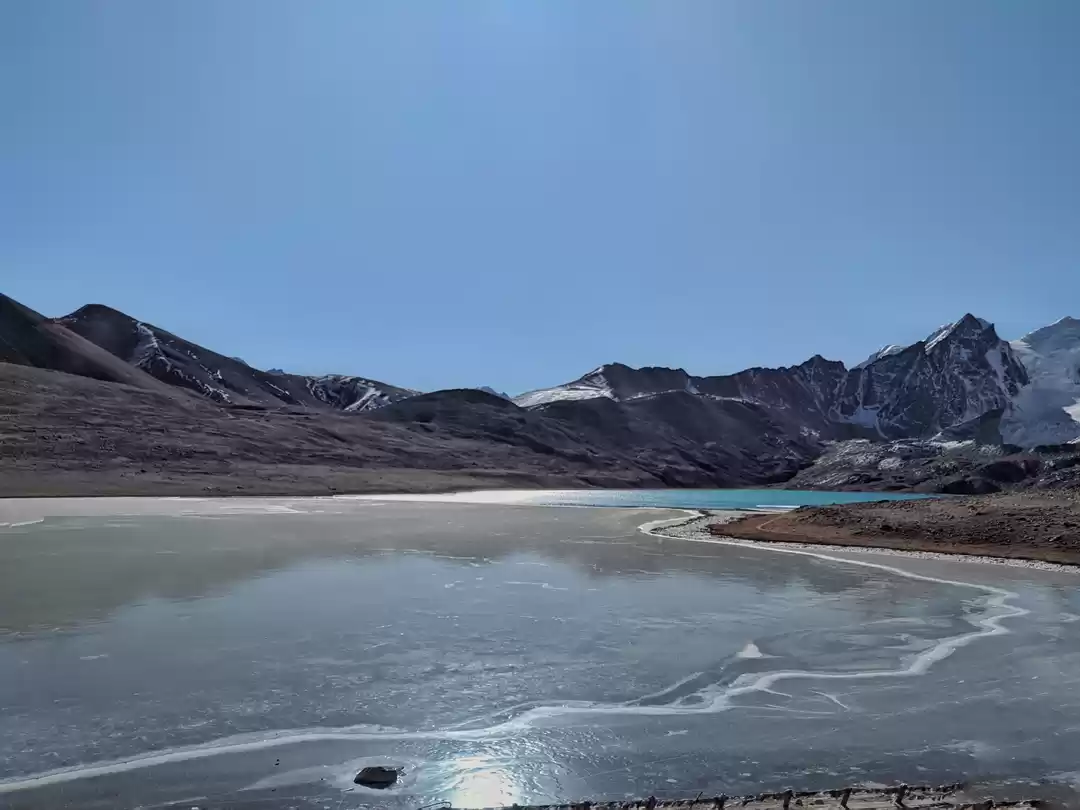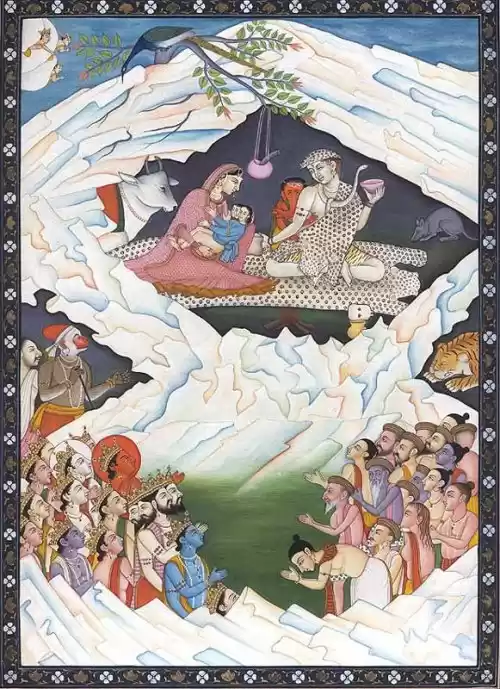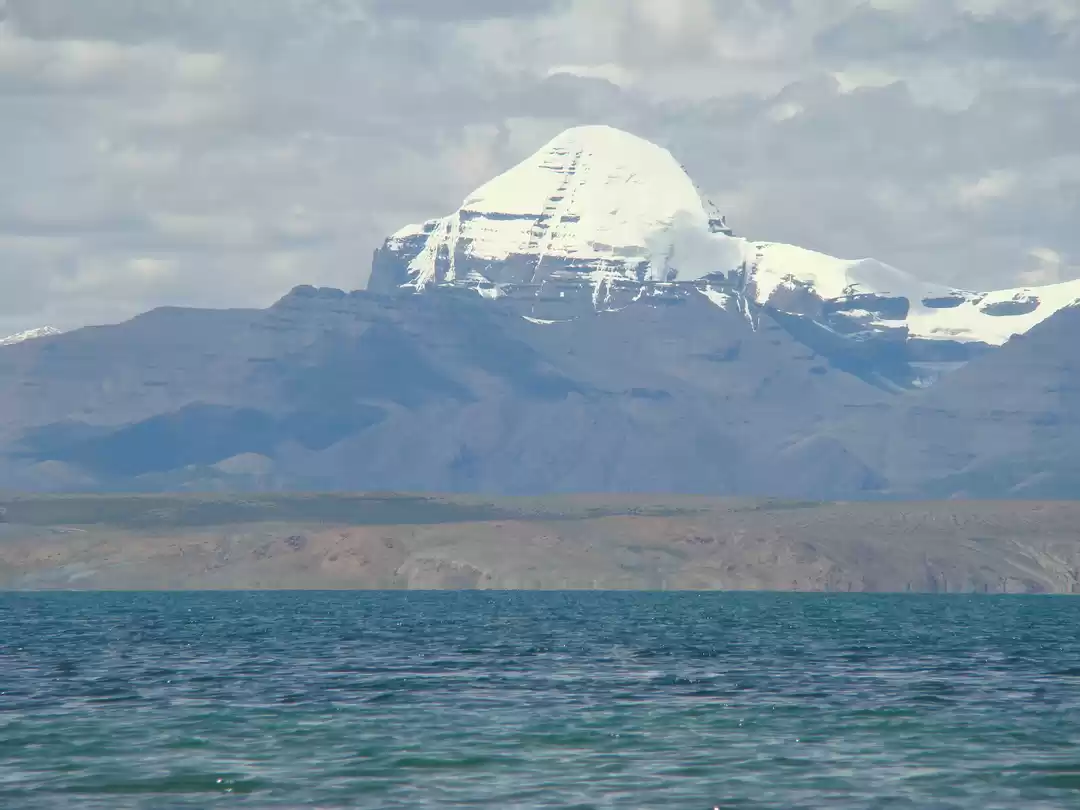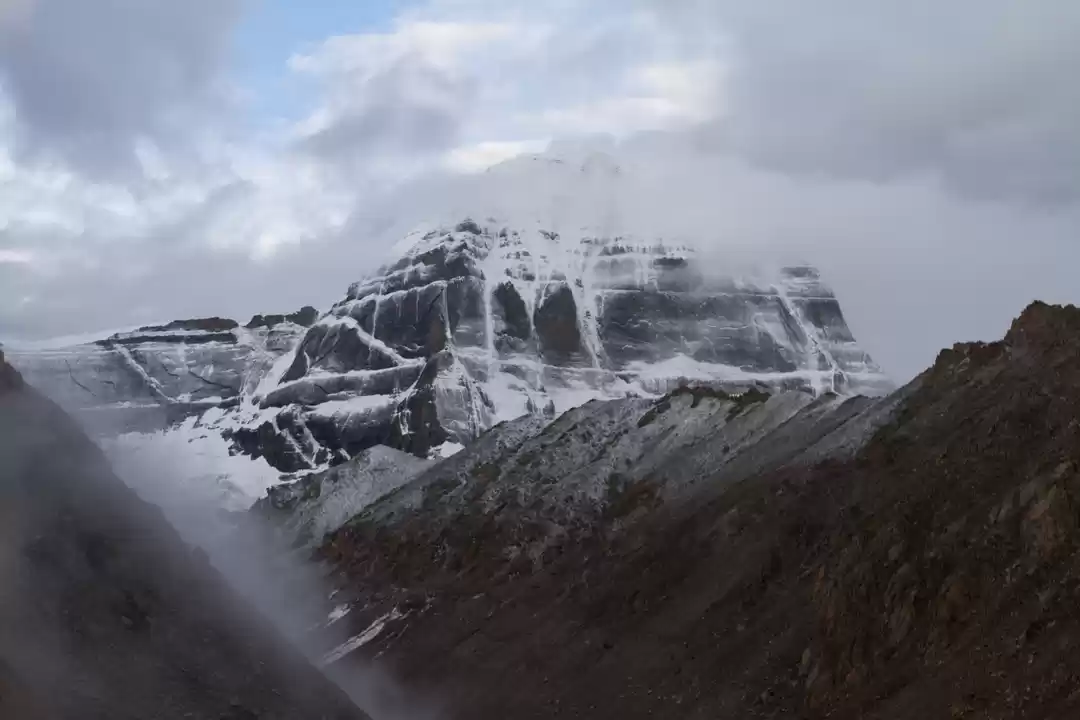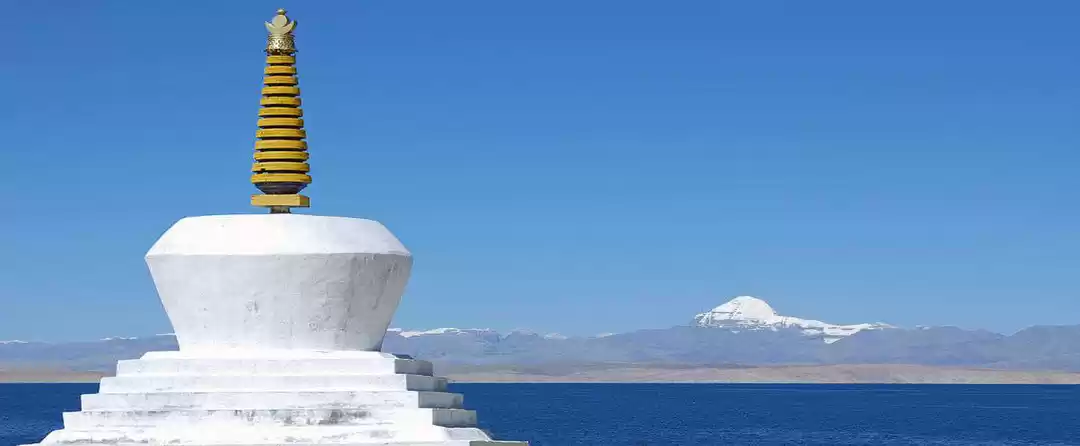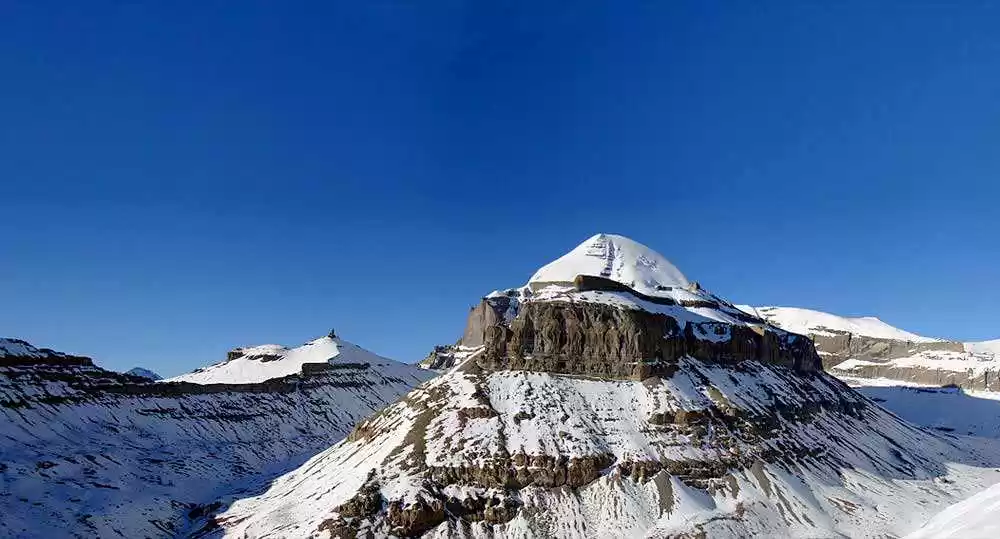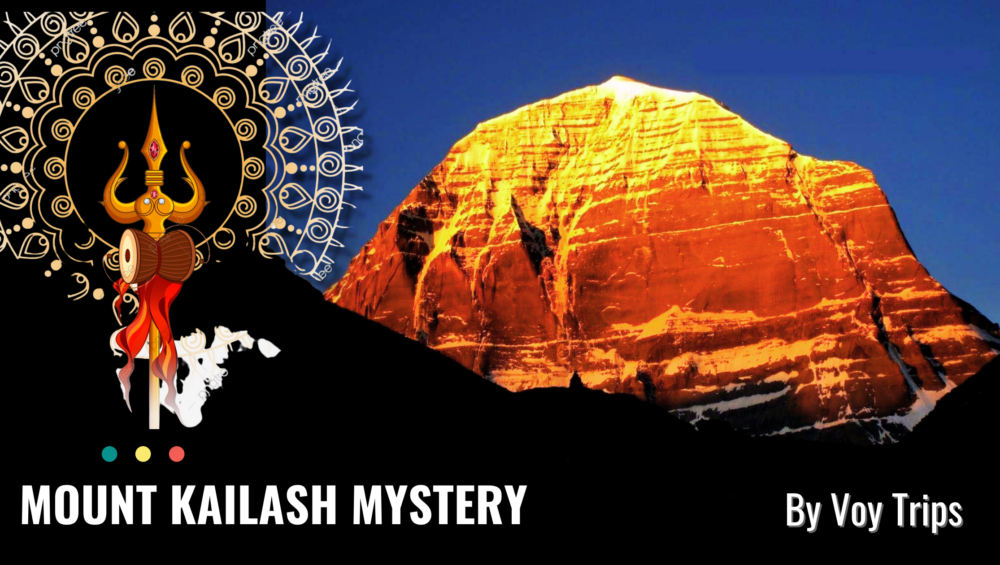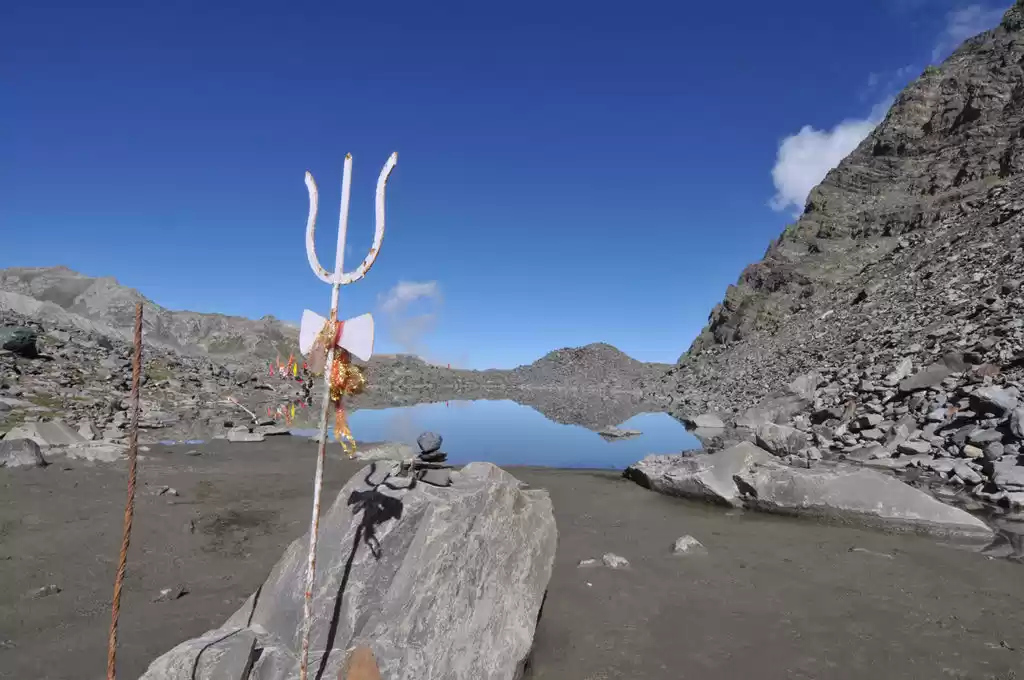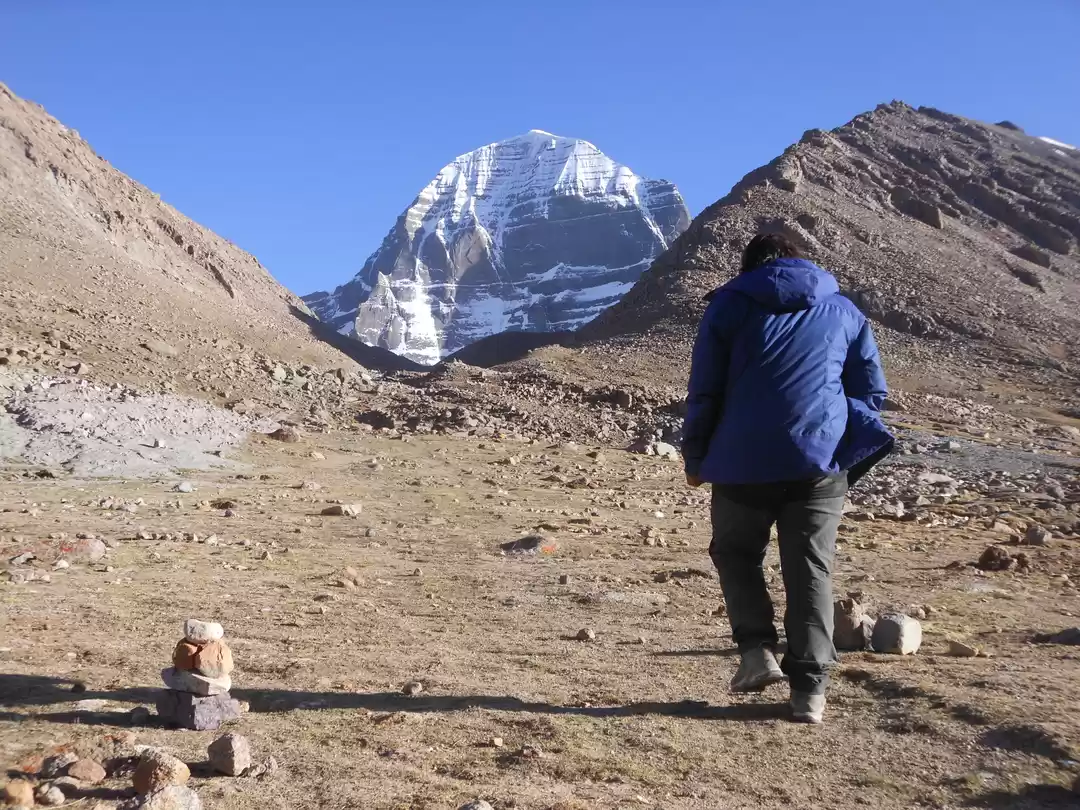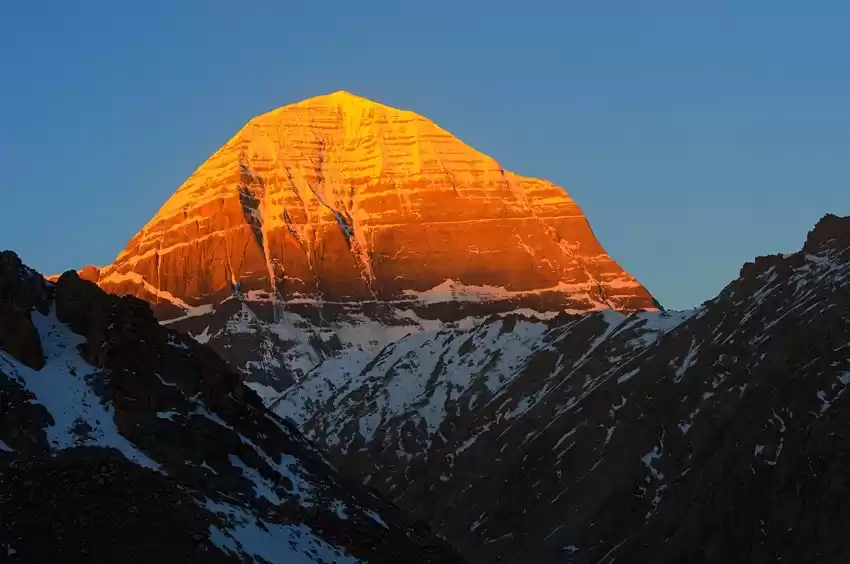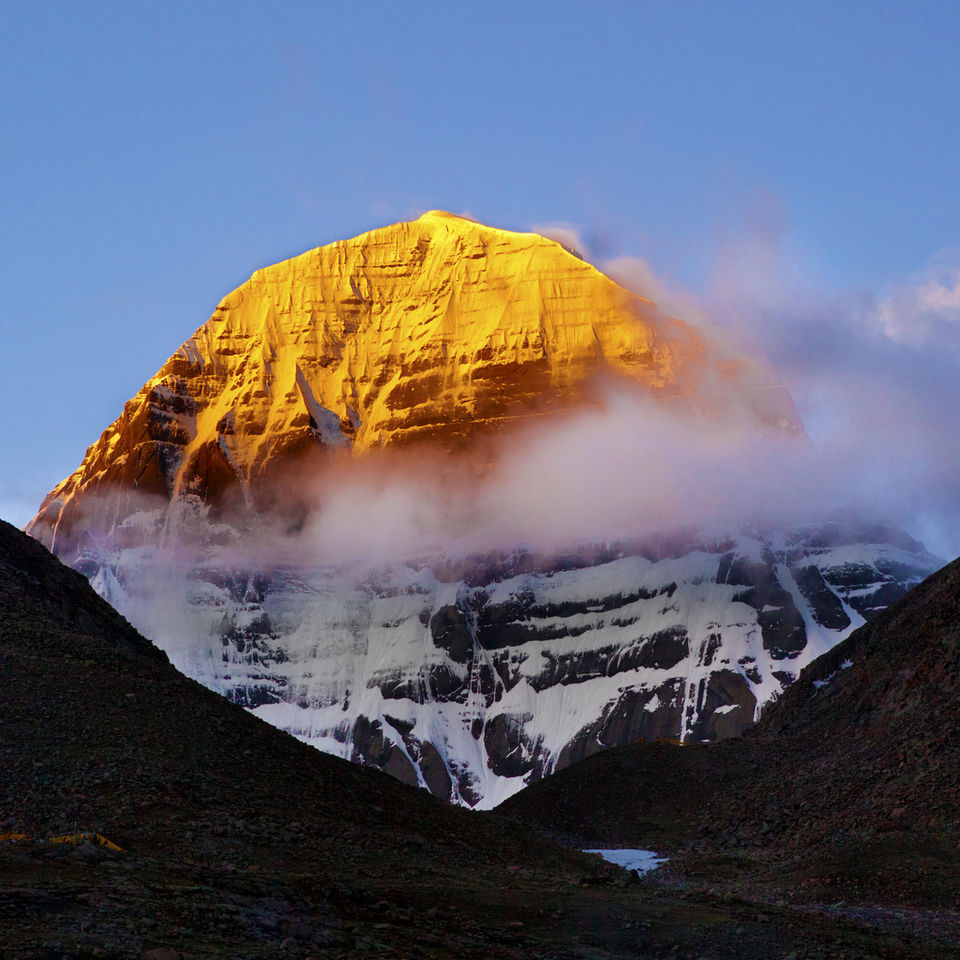




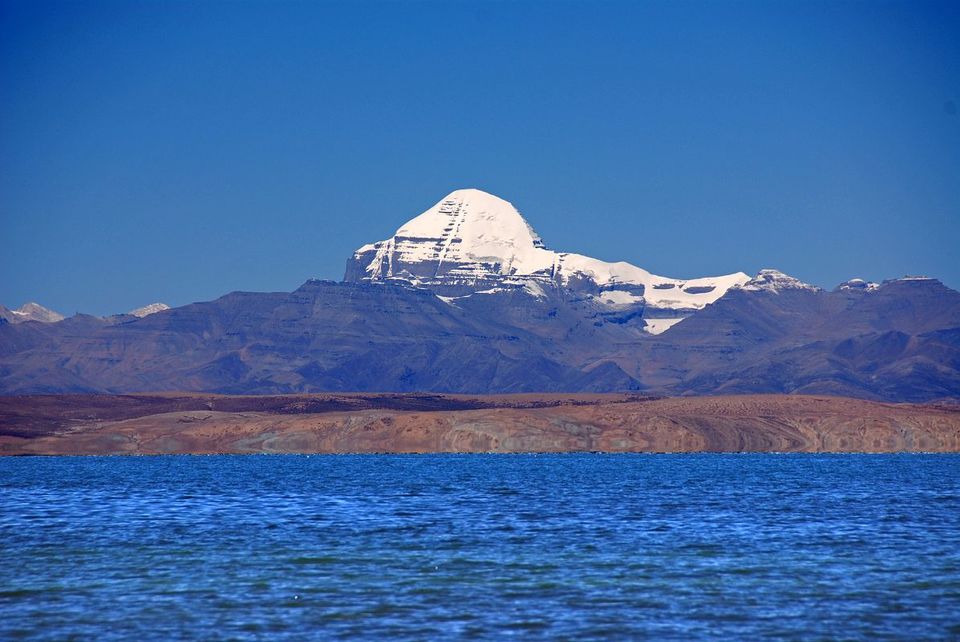


The only mountain on Earth, that no man can climb and it has nothing to do with your physical capabilities. Yes, I am referring to Mount Kailash, a peak that stands majestic amidst the world’s tallest mountain range, The Himalayas.
Most of the Hindu Indians who have been brought up in a relatively religious family, will hardly deny that they are unaware of Lord Shiva’s mythical abode “Kailash Parvat”.
It was indeed quite astonishing to learn that this sacred shrine holds sanctified values for 4 distinct religions –Hinduism, Buddhism, Jainism and Bon.
- Tibetan Buddhists call it Kangri Rinpoche; 'Precious Snow Mountain';
- Bon texts have many names: Water's Flower, Mountain of Sea Water, Nine Stacked Swastika Mountain;
- For Hindus, it is the home of the mountain God Shiva and a symbol of his power symbol Om; for Jains it is where their first leader was enlightened;
- For Buddhists, the navel of the universe; and for adherents of Bon, the abode of the sky goddess Sipaimen;
An imposing mass of black rock soaring up over 22,000 feet is more than just a mountain. It’s the manifestation of heaven itself. It’s not unknown to us that the tallest peak, Mount Everest, has been conquered by mankind long back. However, this peak is different from all the rest. One of the oldest mysteries known to the Oriental World – it is believed that setting foot on its slopes is a dire sin.
After International controversies and disapprovals over the conquest of this mountain, the Chinese Government decided to ban all attempts to ascend this mountain. The first solo climber of Mount Everest, Reinhold Messener had said,"If we conquer this mountain, then we conquer something in people's souls ... I would suggest they go and climb something a little harder. Kailas is not so high and not so hard."
Believe it or not, I find Mount Kailash quite mystifying. The magnificence of this mountain lies not in its height but in its solitary location – free of neighbouring mountains that might dwarf it - and its distinct shape - four flat out faces marking the cardinal points of the compass.
At the foot of the mountain at about 15, 000 feet are two mysterious shaped lakes - Lake Manasarovar and Lake Rakshas Tal. Lake Manasarovar (one of the highest freshwater lakes in the world), is the sacred lake, and is round like the sun. The other lake Rakhas Tal (one of the highest salt-water lakes) is the devil’s lake and has the shape of the crescent moon. The two lakes represent solar and lunar forces, good and negative energies respectively.
The fascination with mountains seem to be rather universal. One cannot help but be inspired by their majesty; after all they are the largest objects on planet Earth. The sight of the peak has a powerful effect, bringing tears to the eyes of many who behold it, leaving them convinced that they have glimpsed the abode of the Gods beyond the round of life and death.
This flawless design of nature's art, of most bewitching and overpowering beauty, has a vibration of the supreme order from the spiritual point of view. It seems to stand as an immediate revelation of the Almighty in concrete form, which makes man bend his knees and lower his head in reverence.
“The Soul who meditates on the Self
Is content to serve the Self
And rests satisfied with the Self;
There remains nothing more for him to accomplish.” – Bhagavad Gita







